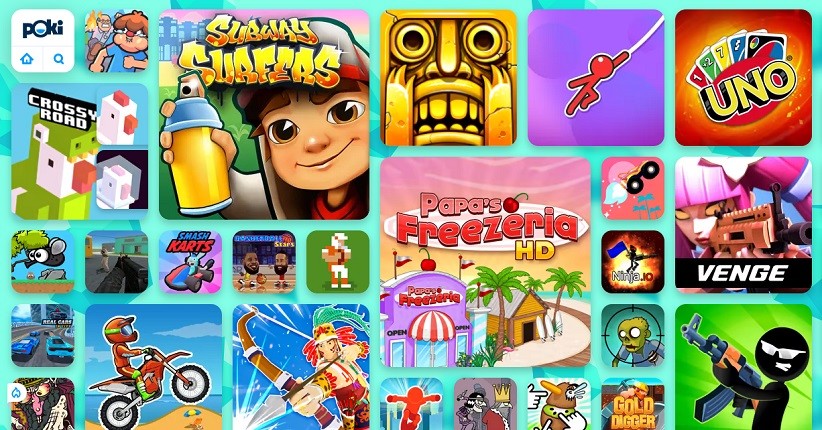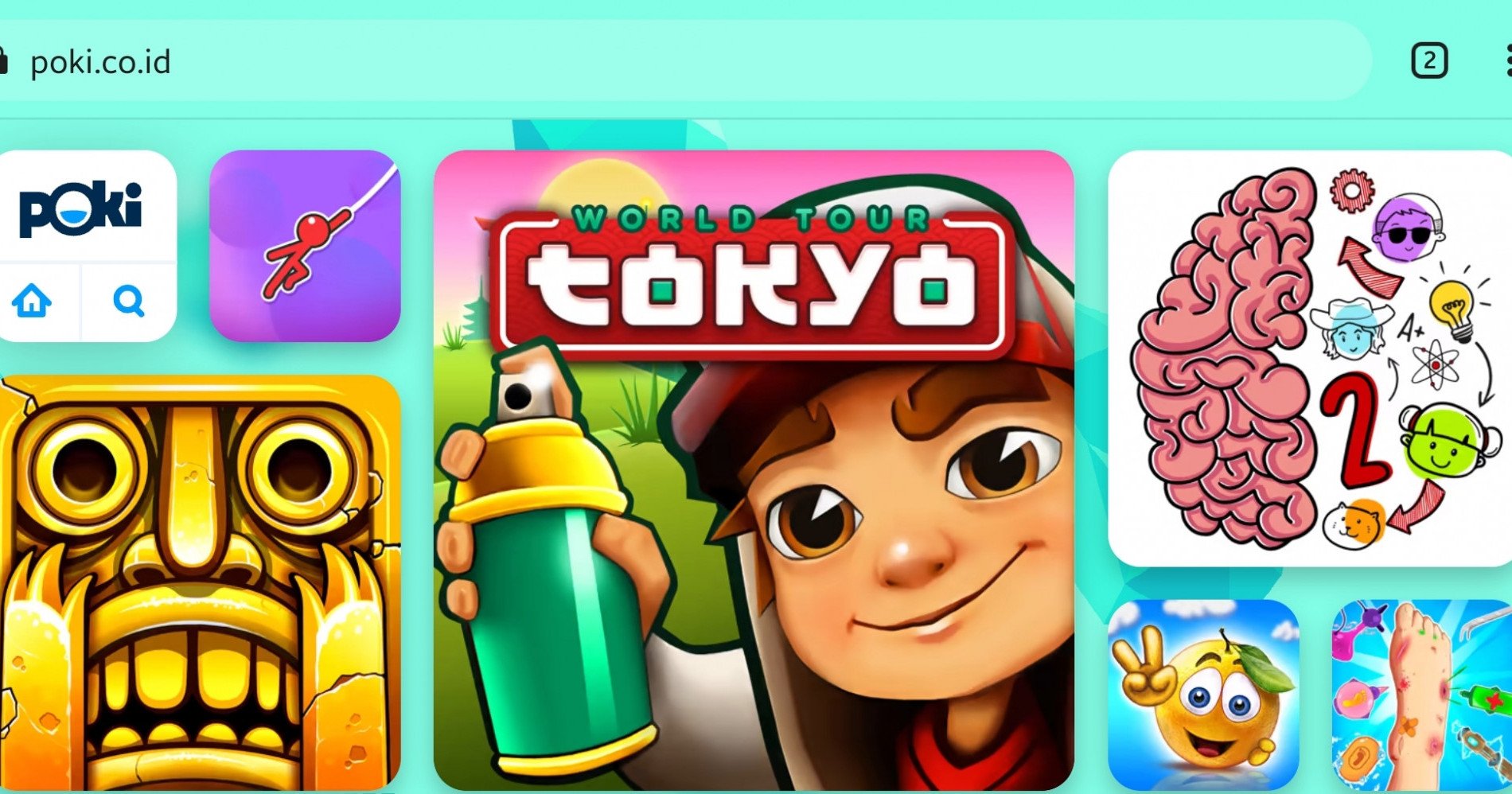The Alluring World of Free-to-Play Online Games: A Comprehensive Guide
In the ever-expanding universe of digital entertainment, free-to-play (F2P) online games have carved a significant niche, attracting millions of players worldwide. These games, accessible without an upfront purchase, offer a compelling blend of entertainment, community, and competitive spirit. However, navigating the F2P landscape requires a discerning eye, as the "free" label often comes with its own set of dynamics and considerations. This article delves into the multifaceted world of free-to-play online games, exploring their appeal, various genres, monetization models, and the ethical considerations that surround them.
The Magnetic Appeal of Free-to-Play
The primary allure of F2P games lies in their accessibility. The absence of an initial price barrier removes a significant hurdle for potential players, allowing them to sample a game without financial commitment. This is particularly appealing to casual gamers, budget-conscious individuals, and those hesitant to invest in a game they might not enjoy.
Furthermore, F2P games often boast a vibrant and expansive online community. The sheer volume of players, drawn in by the free access, creates a dynamic social environment where players can connect, collaborate, and compete. This sense of community can be a powerful motivator, encouraging players to invest time and effort into the game.
Many F2P games offer a compelling progression system. Players can earn experience points, unlock new abilities, acquire powerful items, and climb the ranks through dedicated gameplay. This sense of progression provides a tangible reward for their efforts and keeps them engaged over extended periods.
A Kaleidoscope of Genres
The F2P model has permeated nearly every genre of online gaming, offering a diverse array of experiences to suit various tastes:
- Multiplayer Online Battle Arenas (MOBAs): Games like League of Legends and Dota 2 are titans of the F2P world. They feature strategic team-based combat, intricate character designs, and a deeply competitive esports scene. Players choose from a roster of unique heroes and work together to destroy the opposing team’s base.
- First-Person Shooters (FPS): Titles like Fortnite, Apex Legends, and Call of Duty: Warzone offer fast-paced, adrenaline-pumping action. These games emphasize skill, teamwork, and strategic positioning in a variety of game modes, from battle royale to team deathmatch.
- Massively Multiplayer Online Role-Playing Games (MMORPGs): Games like Tera, Neverwinter, and Star Wars: The Old Republic provide vast, persistent virtual worlds where players can create their own characters, embark on epic quests, and interact with thousands of other players. These games often feature intricate storylines, deep character customization, and a strong emphasis on social interaction.
- Collectible Card Games (CCGs): Games like Hearthstone and Magic: The Gathering Arena blend strategy and luck as players build decks of cards and battle against opponents. These games offer a constant stream of new content and a highly competitive ladder system.
- Strategy Games: Games like StarCraft II (Free to Play version) and browser-based strategy games offer a more cerebral experience, requiring players to carefully manage resources, build armies, and outmaneuver their opponents.
- Racing Games: Games like Trackmania offer thrilling racing experiences with a focus on skill-based gameplay and community-created tracks.
- Puzzle Games: A variety of puzzle games are available for free, offering casual and engaging challenges for players of all ages.
The Economics of "Free": Monetization Models
While F2P games are free to download and play, developers need to generate revenue to sustain their operations and continue developing new content. This is typically achieved through various monetization strategies:
- In-App Purchases (IAPs): This is the most common monetization model. Players can purchase virtual items, such as cosmetic skins, weapons, experience boosts, or other enhancements. These items typically do not provide a significant gameplay advantage, but they can enhance the player’s experience or allow them to customize their character.
- Cosmetic Items: These items change the appearance of a character or item without affecting gameplay. They are a popular way for players to express their individuality and support the game’s development.
- Subscription Models: Some F2P games offer optional subscription services that provide benefits such as bonus experience, access to exclusive content, or priority queue access.
- Battle Passes: Battle passes are seasonal progression systems that reward players with cosmetic items, currency, and other rewards for completing challenges and leveling up.
- Advertising: Some F2P games display advertisements to generate revenue. This can range from banner ads to video ads, and it can sometimes be intrusive.
- Pay-to-Win (P2W): This is a controversial monetization model where players can purchase items or upgrades that provide a significant gameplay advantage. This can create an uneven playing field and discourage players who are unwilling to spend money.
Navigating the Ethical Minefield
The F2P model is not without its critics. Concerns have been raised about the potential for manipulative monetization tactics, particularly those that prey on vulnerable players or create a "pay-to-win" environment.
- "Pay-to-Win" Concerns: As mentioned above, the "pay-to-win" model can create an unfair advantage for players who spend money, potentially alienating those who cannot or choose not to do so. This can lead to a feeling of frustration and resentment among the player base.
- Loot Boxes and Gambling Mechanics: Some F2P games use loot boxes, which are virtual containers that contain random items. The randomized nature of loot boxes has been likened to gambling, and concerns have been raised about their potential to exploit addictive tendencies.
- Predatory Monetization: Some F2P games employ aggressive marketing tactics and psychological manipulation to encourage players to spend money. This can include creating a sense of scarcity, using FOMO (fear of missing out), or targeting vulnerable players.
- Time-Gated Content: Some games restrict progress unless the player spends real money or waits for a certain period of time. This tactic can be frustrating and can encourage players to spend money to bypass the wait.
Tips for Responsible F2P Gaming
To enjoy F2P games responsibly and avoid potential pitfalls, consider the following tips:
- Set a Budget: Before playing an F2P game, decide how much money you are willing to spend, if any. Stick to your budget and avoid impulse purchases.
- Research the Game: Before investing time and effort into a game, research its monetization model and read reviews to see if it is considered "pay-to-win."
- Be Aware of Manipulation: Be mindful of the game’s marketing tactics and avoid being pressured into spending money.
- Take Breaks: Avoid spending excessive amounts of time playing F2P games, as this can lead to addiction and financial problems.
- Prioritize Fun: Remember that the primary goal of gaming is to have fun. If you are no longer enjoying the game, it is time to stop playing.
- Consider Alternatives: Explore other F2P games or consider purchasing a paid game if you are concerned about the ethical issues associated with the F2P model.
The Future of Free-to-Play
The F2P model is likely to remain a dominant force in the online gaming landscape. As technology advances and new gaming platforms emerge, we can expect to see further innovation in F2P monetization and game design. The key to a sustainable and ethical F2P ecosystem lies in striking a balance between generating revenue and providing a fair and enjoyable experience for all players. Developers who prioritize player satisfaction and avoid predatory monetization tactics are more likely to build a loyal and engaged community, ultimately leading to long-term success.
In conclusion, free-to-play online games offer a vast and diverse world of entertainment, accessible to players of all backgrounds and budgets. By understanding the dynamics of the F2P model, being aware of potential ethical concerns, and practicing responsible gaming habits, players can fully enjoy the benefits of this exciting and evolving form of digital entertainment.

